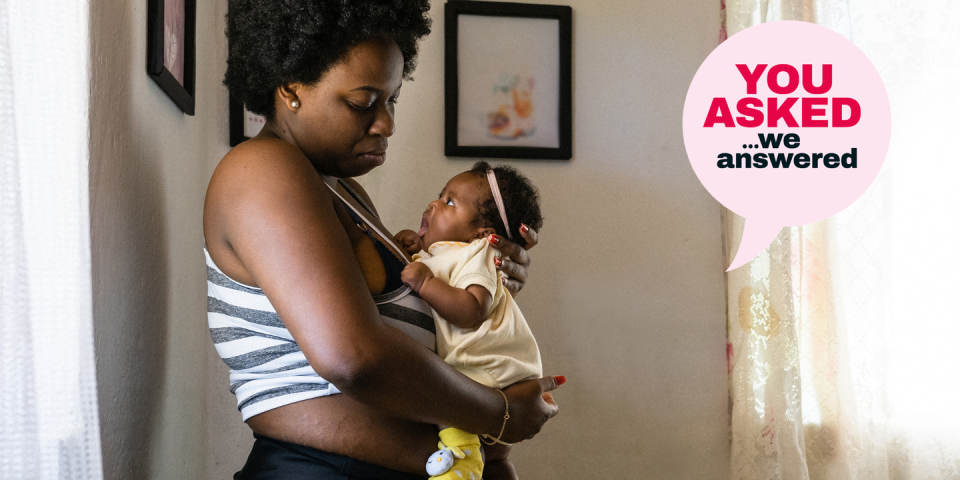'I’ve lost my confidence after having a baby. Any advice on how to accept my new body?'

The expert: Sophie Lait, personal trainer and Women's Health expert panellist

It takes around six-to-eight weeks, give or take, to grow tomatoes from seeds. It’s not a particularly arduous effort, compared with growing other, more sensitive vegetables, but you do need to manage the variables (when you sow, the amount of warmth, water and sunlight the plant is explosed to, and the PH of the soil) if you want a chance at successfully harvesting your crop within that time frame. Six-to-eight weeks is also the amount of time commonly associated with physical recovery from a complication-free childbirth.
Six-to-eight weeks post-birth is when the NHS advises having your postnatal check, and it’s the window of time they recommend waiting before reintroducing high-impact exercise into your routine. Of course, every body is different, and while some may feel fairly restored after a six-week rest, others may, understandably, need much longer to recuperate. Recovering mentally and emotionally following childbirth, however, could take years.
Adapting to life with a baby, and getting reaquainted with your body, can take a huge mental toll – that’s without factoring in birth trauma and recovery complications. It’s common to experience a confidence dip after giving birth, but that doesn’t mean you need to suffer with low self-esteem.
We asked Sophie Lait, personal trainer and Women's Health expert panellist, how you can re-familiarise yourself with – and accept – your body after childbirth.
How can I learn to accept my new body after having a baby?
'I think this is such a difficult one because society has made us focus on our bodies so much that it becomes all-consuming, and the only thing we are able to think about,’ says Lait. 'When you become a mother, it can be so difficult to separate your identity from your child’s. You may feel lost in how you think or how you feel.’
Lait's first piece of advice for learning to accept your new body post-childbirth, is to try to separate your own feelings from societal standards. ‘Try not to rely on someone else (other mothers or society) to tell you how you should be looking or behaving,’ she says. 'We live in this “bounce back” culture. Mothers have been through enough hardship for the past nine months, only to experience judgement surrounding their body when the baby is born. You don’t owe anybody your previous body pre-childbirth, and you certainly shouldn’t expect that of yourself!'
Easier said than done, perhaps, but there are some things you can try to give yourself a little boost. The first: connect with other mothers – online and IRL – who share your experiences. ‘I encourage you to surround yourself with other women who look like you, share similar stories and make you feel safe,’ Lait says. 'It’s important to have that relatability every day so that you don’t feel alone.’
If you’re ready to reintroduce activity into your routine (and you’ve had your six-week check-up) try to make a judgement-free approach. ‘It’s amazing if you want to incorporate movement back into your life, and absolutely fine if you want to lose or gain weight, but it has to be because you are calling the shots – not anyone else,’ Lait says. It’s worth seeing a knowledgable and compassionate post-natal personal trainer, if you can, before taking to the weights so you can map out a programme that’s mindful of your recovery and manages expectations. You likely won’t be able to perform exercises in the same way you could pre-pregnancy for a while, but this is a great time to set new goals and develop a deeper awareness of your body. It may also help to schedule time with a physio for optimal pelvic floor recovery.
Body acceptance is possible, but it’s not always as straightforward as modern marketing may have us believe. Sometimes we need extra support, so it’s worth exploring therapy – whether feelings of low-confidence feel manageable or not – to work through emotions and provide you with the tools you need to navigate low self-esteem in the future.
Regardless of the route you choose, Lait wills you to be kind to yourself. 'Our bodies tell a story – yours is wonderful. Besides, our bodies are the least interesting thing about us, I promise.'
You Might Also Like

 Yahoo Sport
Yahoo Sport 





































